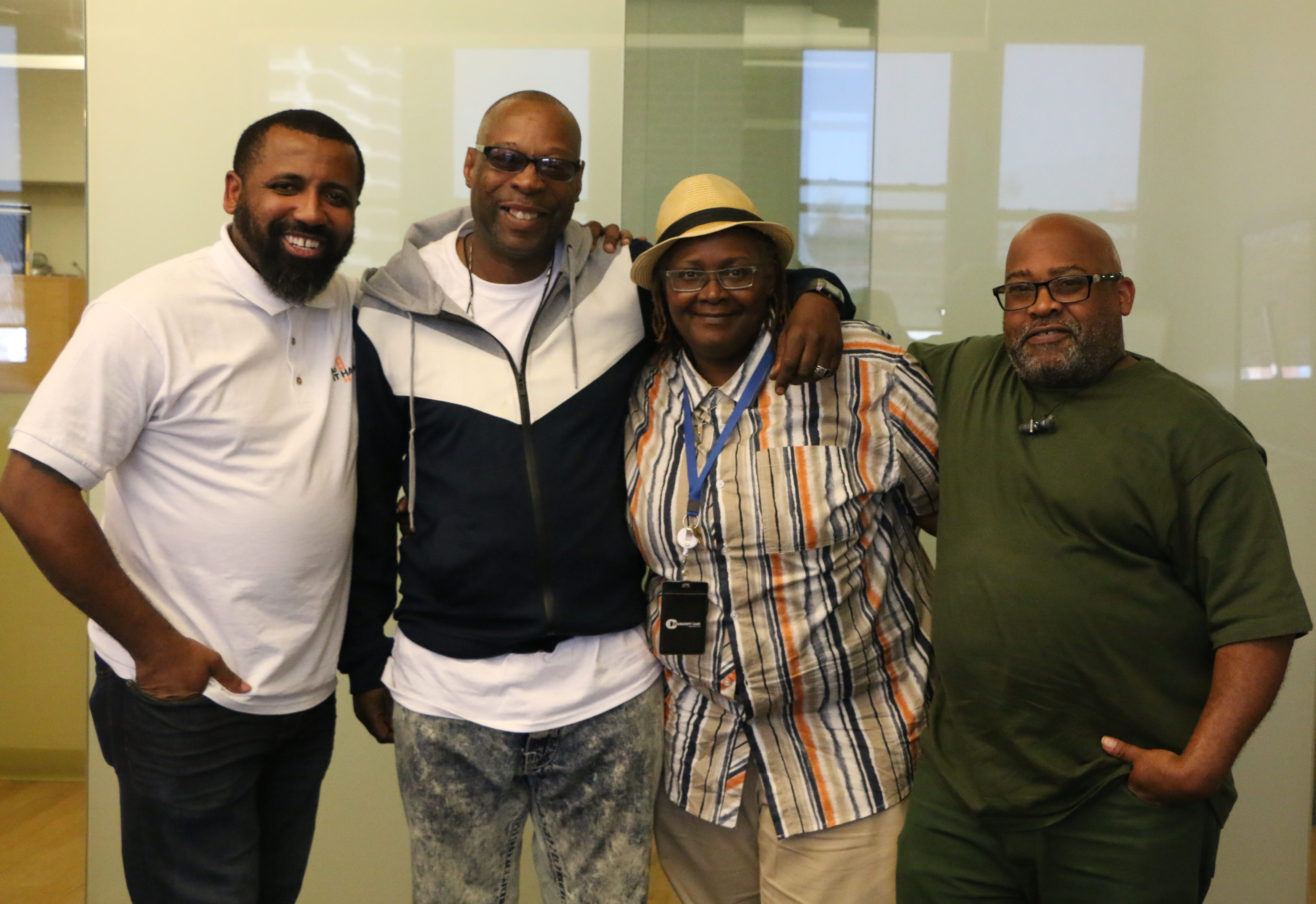Blog

Exploring the First Person Perspective
June 7, 2018On a warm spring day in May, our training room was filled to capacity with social service professionals eagerly awaiting the First Person Perspectives training that was about to begin. They would be listening to Peer Specialists with lived experience of incarceration, reentry and recovery discuss how to best support their justice-involved clients with mental health issues to carve a path to recovery.
Our Academy for Justice Informed Practice trains professionals who work with individuals with behavioral health needs and criminal justice involvement. One of their programs, the Behavioral Health-Criminal Justice Certificate Program, teaches foundational knowledge and skills to facilitate successful reentry and support services. The last training in this program is First Person Perspectives.
First Person Perspectives is formatted as a panel comprised of Peer Specialists and a facilitator. Peer Specialists are individuals with lived experiences, in this case incarceration, that help others going through a similar situation work towards recovery. On this day, there were three peers participating in the discussion.
The conversation began with each of the panelists introducing themselves and the work they do as a Peer Specialist. They discussed their time in prison, the stress they felt being separated from their families, facing racism and seeking rehabilitation while incarcerated. They also described what helped them through incarceration, including their faith and support networks.
The facilitator then shifted the conversation to the reentry process, asking the panelists what their first month out of prison was like. Each described the difficulty they faced seeking employment, housing, and stability upon release. While these experiences were all unique, each panelist found purpose when they became a Peer Specialist and began to help others through the reentry and recovery process.
The facilitator went on to ask each panelist what they believed providers need to focus on in helping people through the reentry process. They explained that it is importance to meet people where they are at and use a person-centered approach to care. “There is no “one size fits all” approach to reentry, each person coming out of prison needs personalized care,” a panelist explained. They also pointed to the importance of having peer support and having someone who understands what it’s like to go through it is crucial.
Before closing and opening the room up to questions, the facilitator asked the panelists what brings them joy in their lives. “Everything I am doing now brings me joy,” one panelist said, explaining the satisfaction he gets from watching the people he works with succeed and find recovery.
As they left the room, audience members stopped to personally thank the panelists for sharing their experiences, many stating what they learned would tremendously help them work with their own clients navigating the reentry process. For many professionals in the room, this was their first time listening to people who had experienced incarceration speak to the care and services they received during reentry. It was a unique experience and an integral training for their careers.
